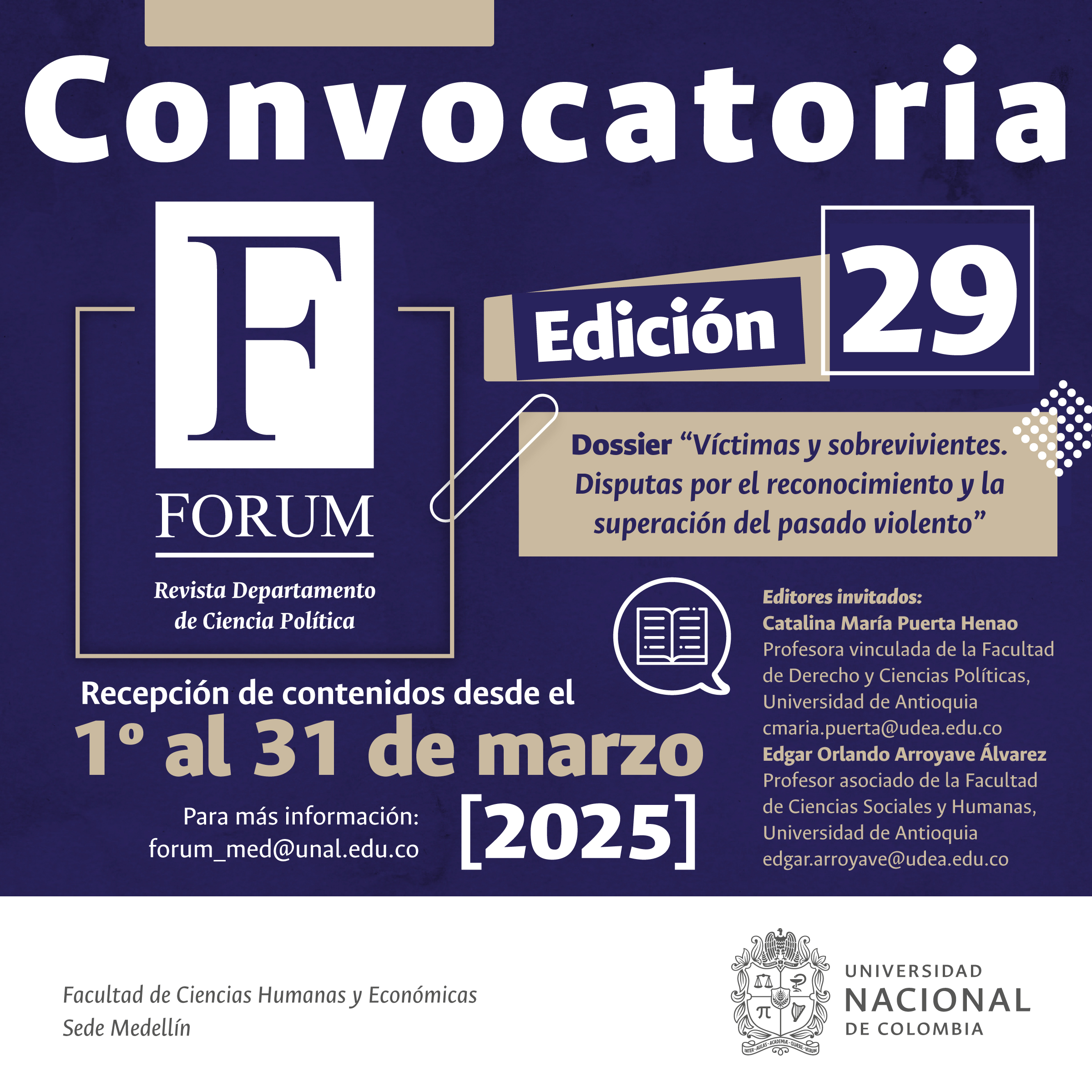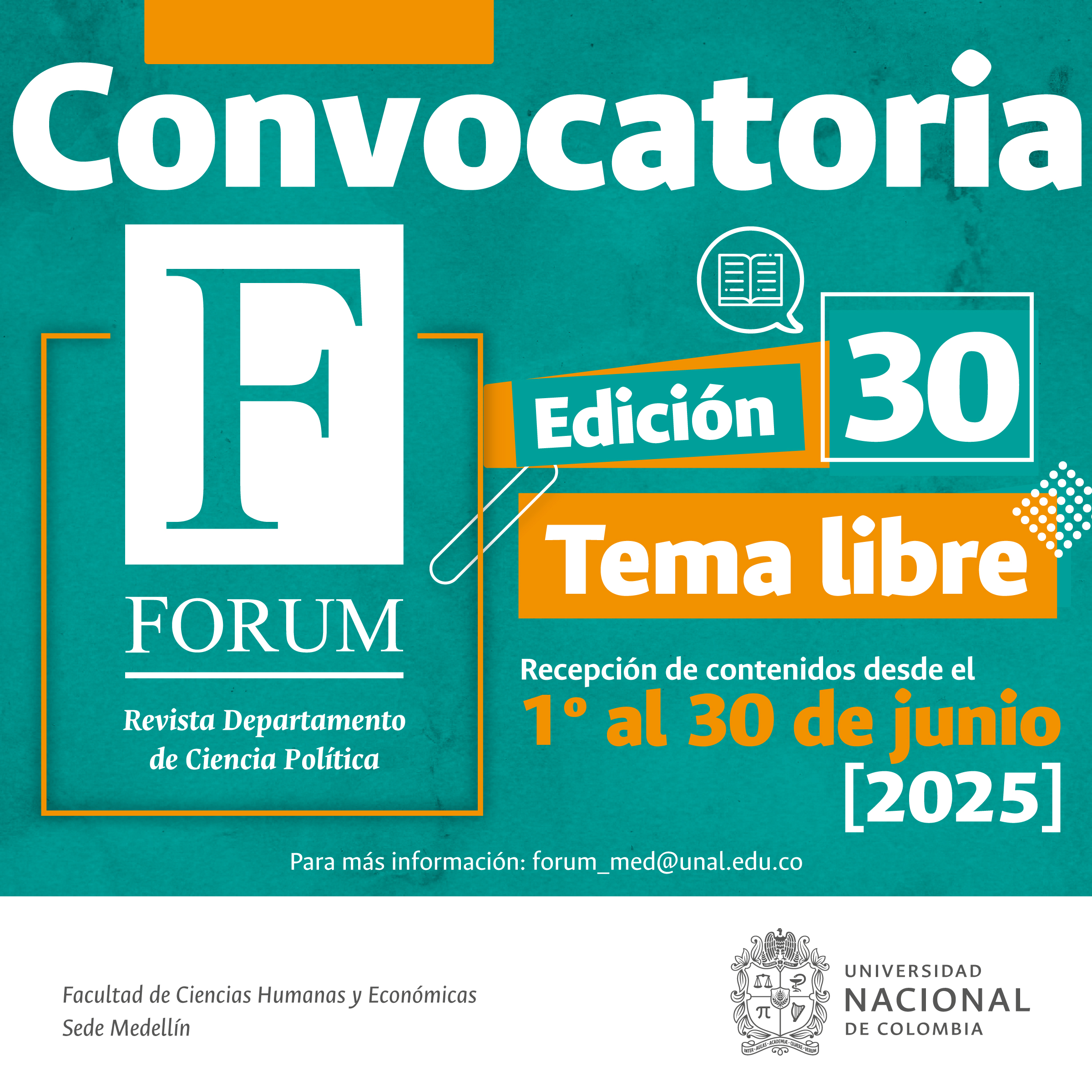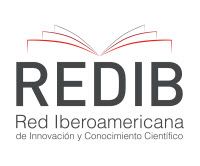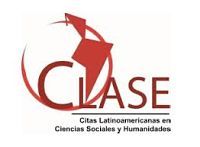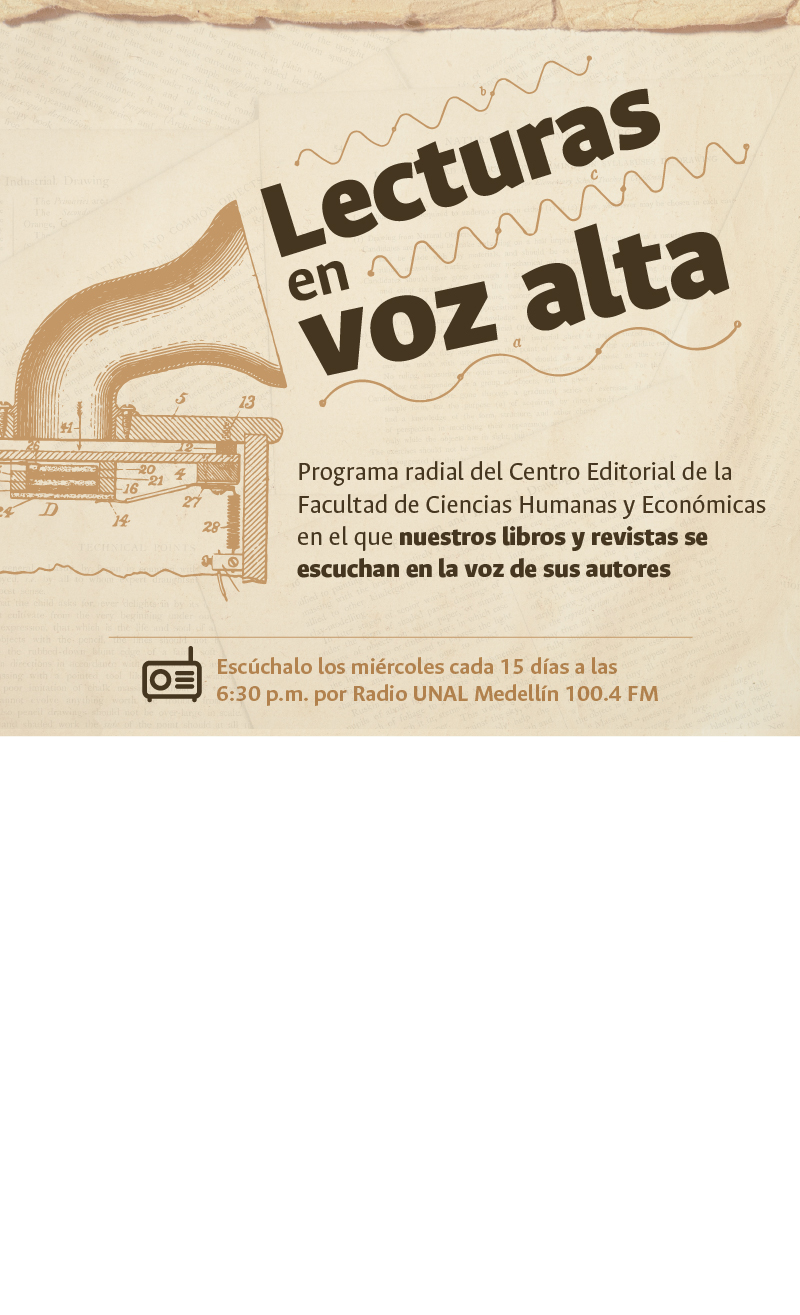Submissions
Submission Preparation Checklist
As part of the submission process, authors are required to check off their submission's compliance with all of the following items, and submissions may be returned to authors that do not adhere to these guidelines.Section Policies
Editorial
Document written by the editor, a member of the editorial committee or a guest researcher on guidelines in the thematic domain of the journal
Dossier
In this section, Forum magazine publishes articles on specific topics:
1) Research article: content that presents in detail the original results of research projects. it is suggested that the structure contain sections: introduction, conceptual framework, methodology and conclusions.
2) Reflection article: contents that present research results from an analytical, interpretive or critical perspective of the author, on a specific topic, using original sources.
3) Review article: contents resulting from finished research where published or unpublished research results are analyzed, systematized and integrated, in order to account for progress and development trends. It is characterized by presenting a careful bibliographic review of at least 50 references.
Tema abierto
In this section, Forum magazine publishes free-topic articles:
1) Research article: content that presents in detail the original results of research projects. it is suggested that the structure contain sections: introduction, conceptual framework, methodology and conclusions.
2) Reflection article: contents that present research results from an analytical, interpretive or critical perspective of the author, on a specific topic, using original sources.
3) Review article: contents resulting from finished research where published or unpublished research results are analyzed, systematized and integrated, in order to account for progress and development trends. It is characterized by presenting a careful bibliographic review of at least 50 references.
Documentos
Interviews and reflective documents on various topics of political science and related disciplines.
Reseñas
Reviews must have a critical and analytical perspective, of books published in the last two years.
Copyright Notice
Those authors who have publications with the FORUM Revista Departamento de Ciencia Política, accept the following terms:
The authors will keep their copyright and guarantee the journal the right of first publication of their work, which will be simultaneously subject to the Creative Commons Attribution License - Non-Commercial - No Derivate 4.0 that allows third parties to share the work whenever its author is indicated and its first publication this magazine.
Authors may adopt other non-exclusive licensing agreements for the distribution of the published work (eg, deposit it in an institutional telematic archive or publish it in a monographic volume) whenever the initial publication in this journal is indicated. .
Authors are allowed and advised to disseminate their work through the Internet (eg in institutional telematic archives or on their website) before and during the submission process, which can produce interesting exchanges and increase citations of the published work. (See The effect of open access).



